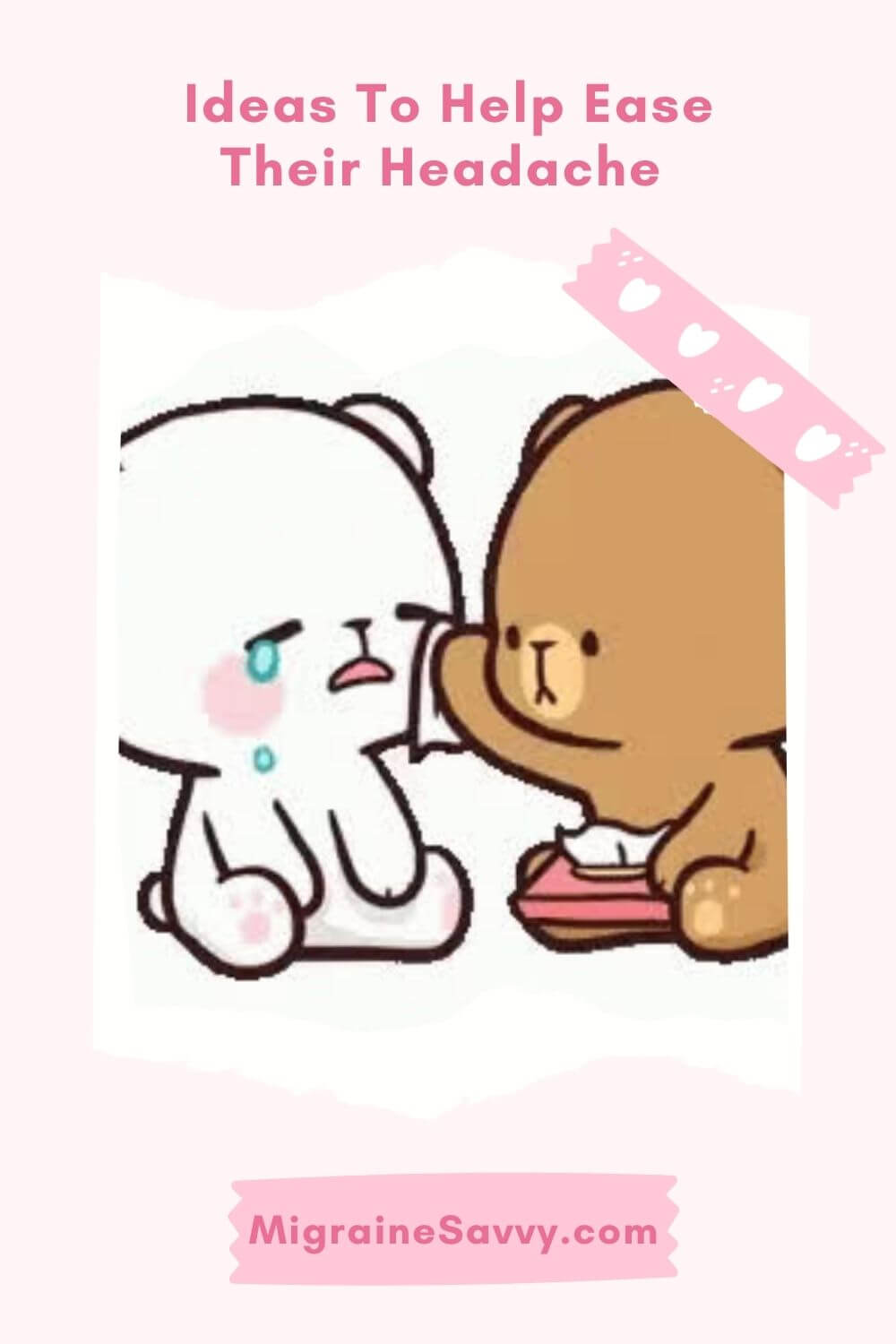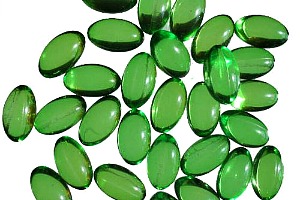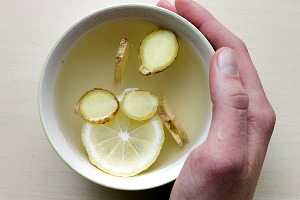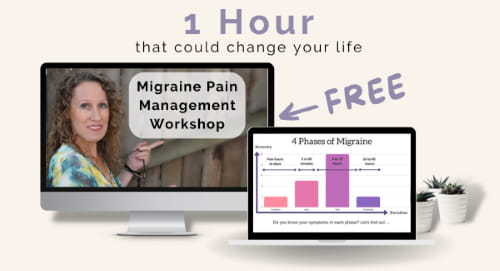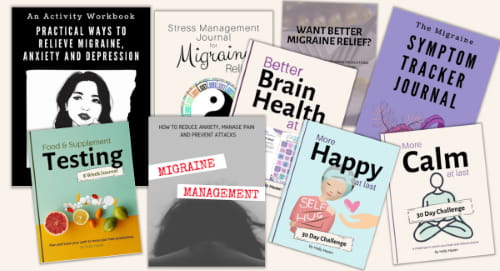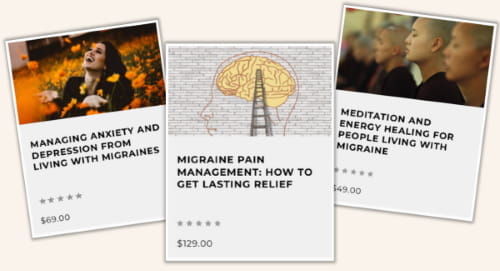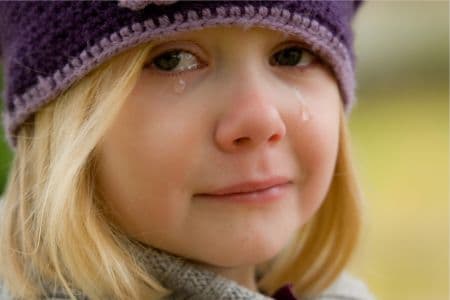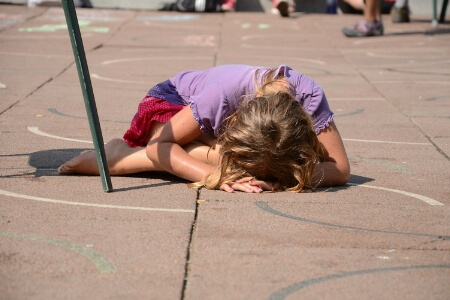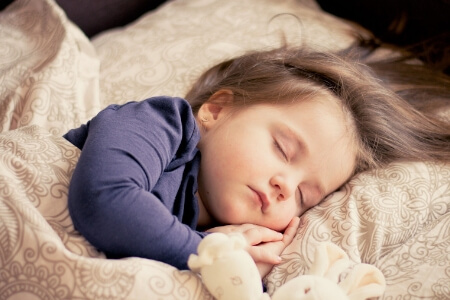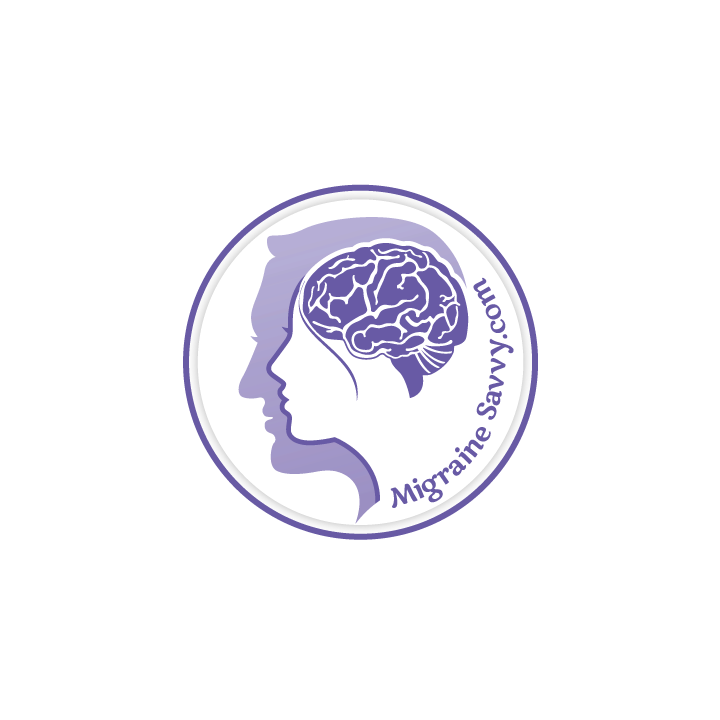- Home
- Migraine Help
- Children Experience Migraines
If Your Children Experience Migraines, This Is How To Help
As a parent, if your children experience migraines, it can be complete and utter torture. Knowing that it's a inherited genetic condition does not seen to tone down the guilt... at all.
So, I'm here to help... we're going to cover:
- What signs to watch for, if your child is preverbal
- How to help prevent any long-term side effects of the emotional stress of this horrific condition
- 7 useful options
- Links to natural anti-nausea solutions
- Tips from other parents in the comments section

If you are a migraine sufferer, you already know that they do not just cause physical pain.
They cause daily/weekly interruptions and can have long-term emotional side effects - like PTSD - that can effect us from childhood into adulthood.
According to Terri Roberts in her book Living Well with Migraine Disease and Headaches, a good support system is as important as good medical treatment.
She talks about isolation, anger, grief and the sense of loss that comes with chronic headaches and migraines. This is actually a huge topic and it's not just for kids!
Let’s face it we all want our children to grow up happy, healthy and
have abundant lives. We want to raise strong, capable, happy,
confident, emotionally stable kids.
If children experience migraines it can put, a damper on
that. Seeing your child in such great pain, is... well ... it’s just unbearable sometimes. But there is hope!
Warning Signs That Your Child Is In Pain
If your child, or children are older, they can often tell you that they have pain, although some children might not be able to tell you exactly where their pain is. Younger children may show you that they have pain by:
- crying or screaming
- banging their heads (on the crib or floor)
- pulling a face
- changes in their sleeping or eating patterns
- becoming quiet and withdrawn
- refusing to move, or being unable to get comfortable. [4]
If you can't seem to comfort them enough to relax, try using an ice pack or cold compress to ease the headache. Pain relievers like paracetamol or ibuprofen might help... but if it's a migraine, you might need to take other actions. [4]
I've written more about effective treatments for migraine in children here - Migraine Relief For Children: Prevention, Treatment And Medications.
The Royal Children's Hospital in Melbourne suggest using paracetamol for mild to moderate pain in babies over one month old, children, adolescents and adults. And ibuprofen can be used for mild to moderate pain in children, adolescents and adults. It should not be used in children under three months of age, or be given to children with bleeding disorders. [4]
Never give aspirin for pain to your child if they are under 12 years, unless it is advised by your doctor. It can cause a rare but serious illness called Reyes Syndrome.
~ The Royal Children's Hospital Melbourne [5]
How To Help Prevent Emotional Stress When Children Experience Migraines
Not only is there a lot of professional help available, like school counselors or on-line professional pain counseling 24/7.
Your local neighborhood center often has free counseling.
There are pain clinics now using
biofeedback
devices, and many alternative therapists specializing in migraine headaches. Just a word of caution here to see your physician first. Get the right diagnosis and treatment plan before spending too much on complementary therapies that boast a cure.
There are more migraine savvy doctors and there are more effective preventative medications to use with childhood migraines than ever before in history. And overall, migraine is slowly being recognized as a serious medical condition.
You have a number of options for self care that will help prevent long-term emotional side effects from taking hold. Here are a few:
Here Are My Recommendations For Kids:
As an Amazon Associate, I earn from qualifying purchases - affiliate disclosure.
- Songs for the Inner Child: Shaina Noll (my all time favorite one)
Here Are 7 Ways To Help If Your Children Experience Migraines
Here are a number of options for managing the emotional side effects if your children experience migraines.
According to Migraine for Dummies if you are a migraine sufferer yourself, you already have most of the essential keys for surviving migraine attacks. Especially if you are a chronic sufferer with years of experience. So you can show your child that a wonderful and successful life is possible.
Staying optimistic is option one!
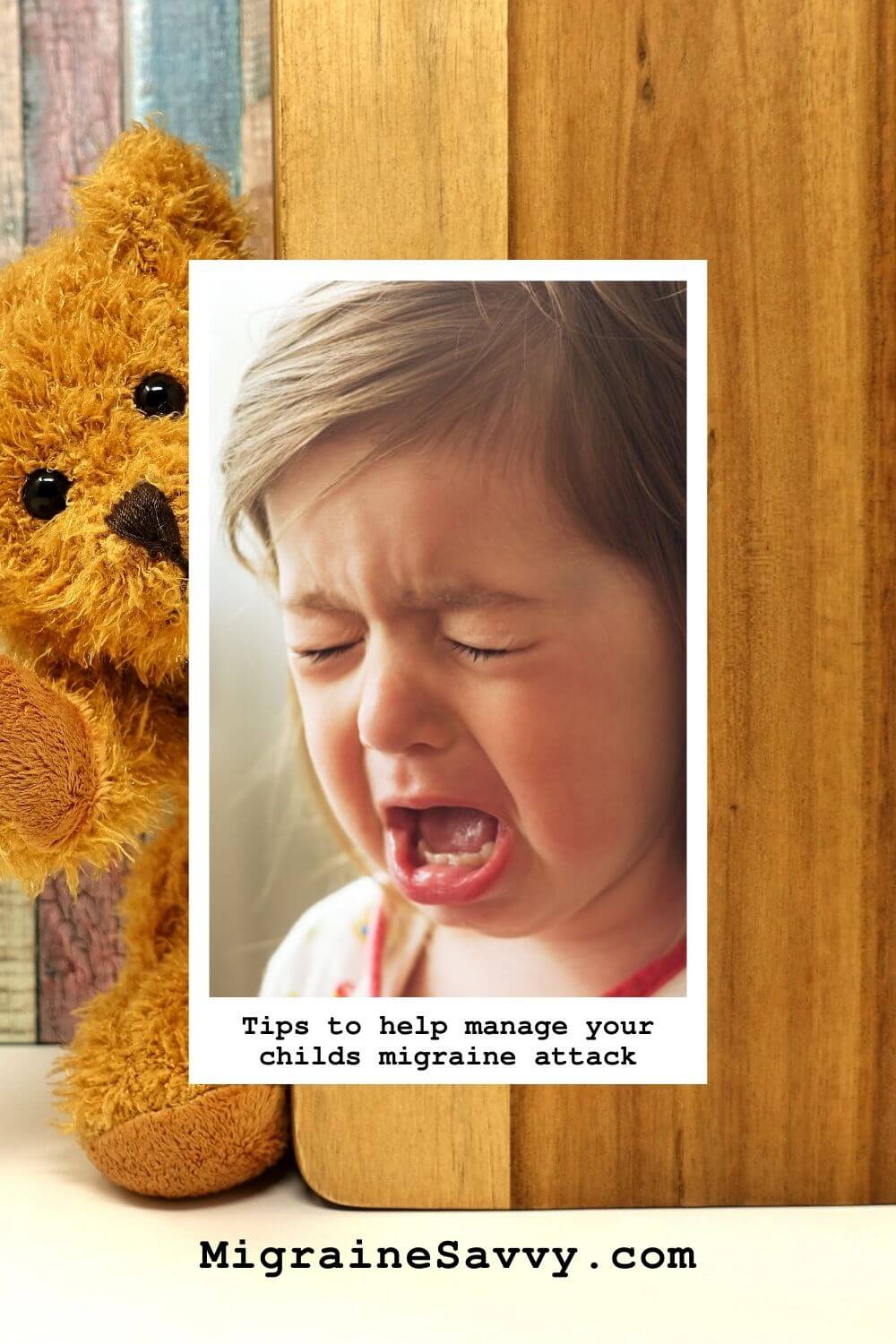
Option Two – be honest and up front when they are old enough to
understand. The statistics show that about one out of ten kids (10%) from
ages 5 to 15 have headaches that are bad enough to put them in bed. It goes up for adolescents to 28% from ages 15 - 19.
This means no soccer, no friends or socializing, and many cancelled
appointments.
They will feel disadvantaged by missing activities, they will feel upset about missing friends parties, and they will miss school. You may need to make a little extra effort here. Consider a tutor or ask the school for additional assistance.
"Repeated school absences not only impair academic progress but also prevent normal social activities and development." [3]
Because children experience migraines that are short in duration, they may need to go to the nurses office for treatment instead of coming home. If they do come home, they may be well enough to return to school in the afternoon.
Option Three – other people that do not get migraines do not understand this level of pain. My psychologist once quoted "forgive their ignorance of MY suffering". I used to get so angry and hurt that others thought I was avoiding things.
Take this as a given. They think it’s just a headache, like
they get, or that you are trying to get out of something you don’t want
to do. Your child will inevitably ask you “why me?” Prepare yourself
to explain this hurdle.
Option Four - remember to tell your child about their good points
that you see. Repeat their strengths (they will need reinforcement)
and how positive they are normally, when they are not in migraine.
Focus on their good parts, when he is happy, how many friends he has,
and how much you love him for who he is. Pain or no pain.
Remember pain is not all that we are.
Option Five - they will notice your responses. I don’t have
to tell you that - they mirror us all the time! So, they must learn
from you that migraines are important enough to be dealt with in a
business like fashion. By this I mean – get educated about your
condition, learn ways to manage it, and find strategies that work for you.
People run businesses with organization and strategy, why not use
similar successful tools in our life? Use a migraine diary or symptom tracker to help determine patterns.
We need to somewhat distance ourselves from the intense emotion and think positively and be organized and prepared for an attack - as much as humanly possible. I know they are only children, but they will take your lead.
If you are level headed about it all, they will see and
learn this part too. Even without speaking. How you deal with it
matters! If you become an emotional wreck, chances are they will not
handle it well either.
Option Six - it might be useful to tell them about other famous people that have migraines and still lead spectacular lives. Check online for their favorite people – athletes, actors, baseball players, you know. Let them know a good life is possible.
They will be too
young to appreciate that Elvis had horrible migraine attacks. But they might know Lewis Carroll who wrote Alice in Wonderland.
Option Seven - this one is important and Migraine for Dummies says it best: ”Make sure that you tell him he doesn’t get migraine attacks because he’s bad” or because God is punishing him for being naughty.
More Recommendations To Help Comfort Your Kids:
As an Amazon Associate, I earn from qualifying purchases - affiliate disclosure.
Encourage Them To Get Out Of Bed As Soon As Possible
OK – here’s the hard part – mom’s and dad’s! With children it is necessary to encourage them to get out of bed as soon as possible and get back to what they can do.
Children do not suffer for hours and days
like adults do. They typically have one to three hours of pain, in
most cases, so they can get back to activities much sooner than you
might think.
Research findings say that over protected children can become more
isolated, see themselves as fragile and disadvantaged if you
“mollycoddle” them and nurse them back to health too much. If they
think “poor me” all the time, it might cause them to become social
outcasts and get more depressed.
Some people benefit from taking their medication and moving. Getting
active may actually reduce the pain episode. You may need to
experiment. But staying in bed is not the only answer for children and
can lead to having detrimental emotional side effects.
Another option to help manage the emotional side effects when children experience migraines is to help calm them down with an easy migraine meditation using a progressive muscle relaxation technique. Once they have rested and the pain has subsided, they can return to their activities.
Regardless of your child's age, migraines usually get better or go away altogether with sleep. [4]
More Things That Help When Children Experience Migraines
When your children experience migraines things can get quite difficult to manage. So hang in there and don't give up. You will find what works...
Until next time, be well, and may your toughest days be met with comfort and care. Keep going - you are stronger than you know.
~ Holly, Migraine Savvy
You might like to read this as well...
Children with Migraine: A Guide for Parents
This excellent and thorough resource is from www.migrelief.com. Their links are in the document.
Ready to take the next step?
Choose the next step that fits where you are right now.
MIGRAINE IN CHILDREN Related Articles
If Your Children Experience Migraines References:
1. Robert, T. (2005) Living Well with Migraine Disease and Headaches. Harper Collins Publishers: New York.
2. Stafford, D. and Shoquist, J. MD. (2003) Migraines for Dummies. Wiley Publishing, Inc: New York. pp. 241-260.
3. Rizzoli, P. MD et al (2011) The Migraine Solution. St. Martin's Press: NY. p. 106.
4. The Royal Children's Hospital Melbourne (2018) Migraine headache. Available [online] at: https://www.rch.org.au/kidsinfo/fact_sheets/migraine_headache/ Accessed Mar. 13, 2019 Updated Feb. 12,2021
5. The Royal Children's Hospital Melbourne (2020) Pain relief for children – paracetamol and ibuprofen. Available [online] at: https://www.rch.org.au/kidsinfo/fact_sheets/Pain_relief_for_children/ Accessed Feb. 12,2021
Comments On If Your Children Experience Migraines, This Is How To Help
Patrice Hughes for your daughter...
If your children experience migraines, there is an app for breathing and it shows a round ball inflating then deflating to simulate how to breathe but one key tip I was taught at 28 was how to breathe from the lower lungs almost at tummy level. If you tend to panic your breathing becomes shallow and is more up where your breastbone or above is and it is scary for anyone who experiences this.
When she is NOT having any symptoms teach her how to breathe properly it should be a natural part of how we all need to live every breath we take.
To learn the technique:
Start by placing a heavy telephone book (or something like that, yes who gets those anymore?) on your/her abdomen. Focus on getting breathe down that far so the book rises. Ask her to breathe in deeply count to a number and increase it weekly.
It can cause a feeling of headiness so don't overdo it in beginning this exercise.
Make this a daily habit as often as it takes to learn to breathe deeply.
The reason is we do not use our lungs to full capacity, and we all get lazy, me included.
When you expand lung and breathing it helps keep you oxygenated and less stressed.
It takes time and loads of practice, but it helps everyone in many instances especially when nerves are involved.
Also, simple yoga stretches or meditation.
Yes, kids can participate in these and thrive from the experience to even learn to block the symptoms at first recognizing what their signs are.
I use ice packs and a fan year-round when I'm having a migraine. I rarely use heat as it makes it worse for me.
Finding the correct pillow is important.
Sleeping with the bed raised put a foam wedge under the mattress maybe... some catalog companies sell them - Walter Drake, Carol Wright...
Read up on Meniere’s Disease it's an inner ear issue that can cause migraine symptoms and find an ENT specialist perhaps. The singer actress Kristen Chynoweth (Wicked-Broadway) has it. Google her plus illness and read her story. That's how I found out about the bed wedge trick.
Good luck and I wish you all ways for wellness!!
To add answers or comments about this page please use my contact form. Please enter your title and add this page ref: [If Your Children Experience Migraines, This Is How To Help].
